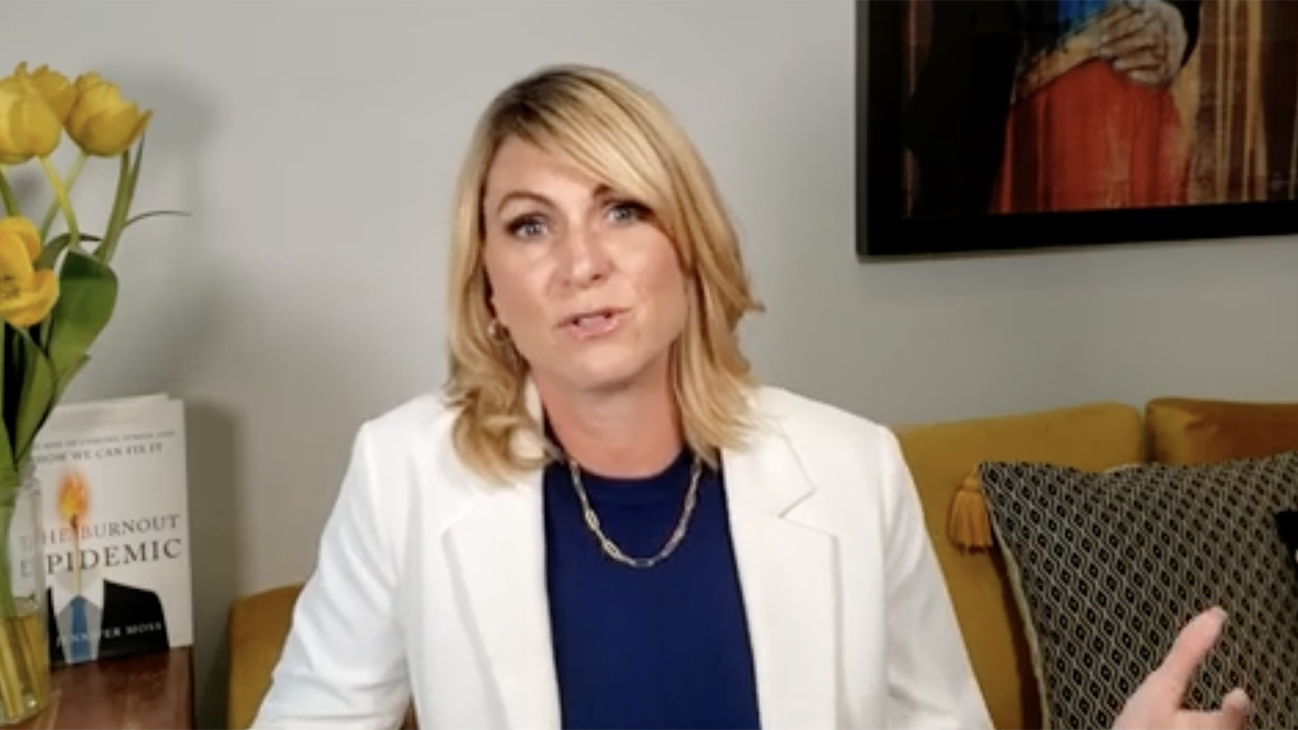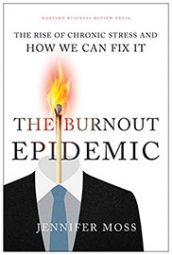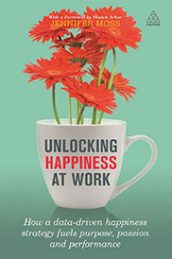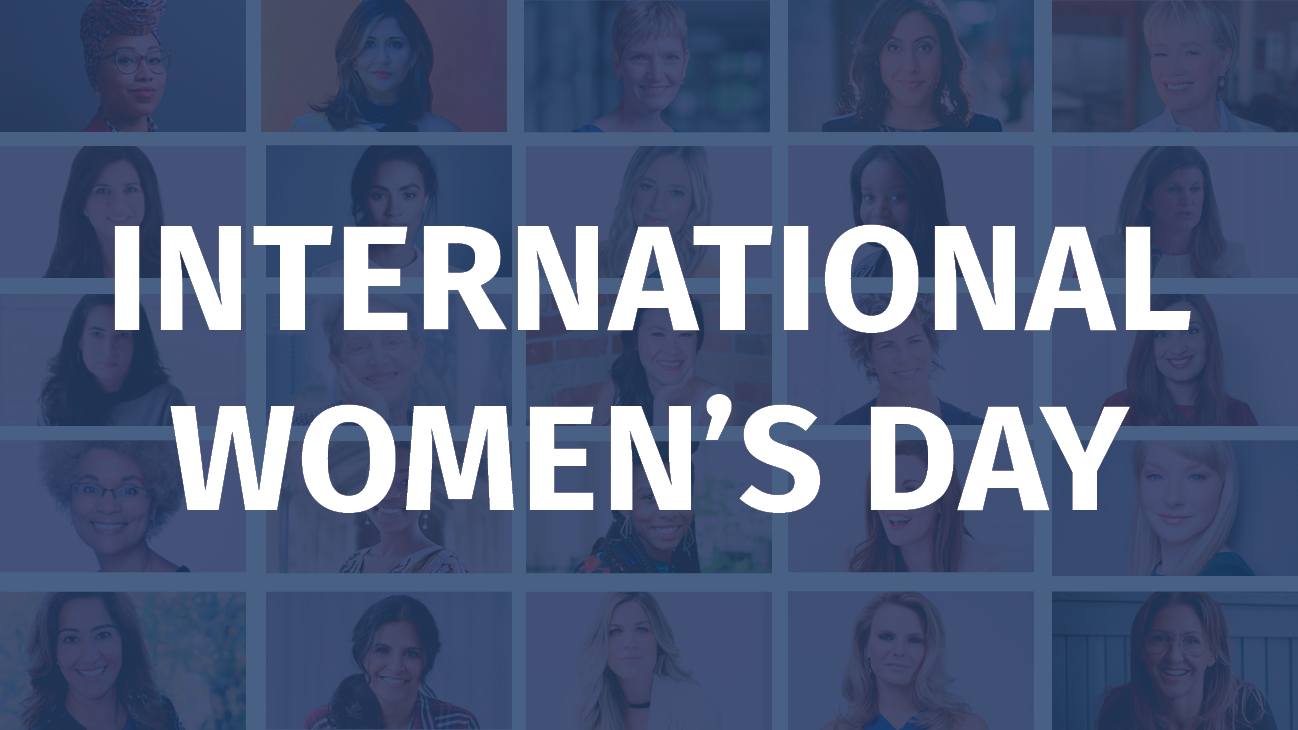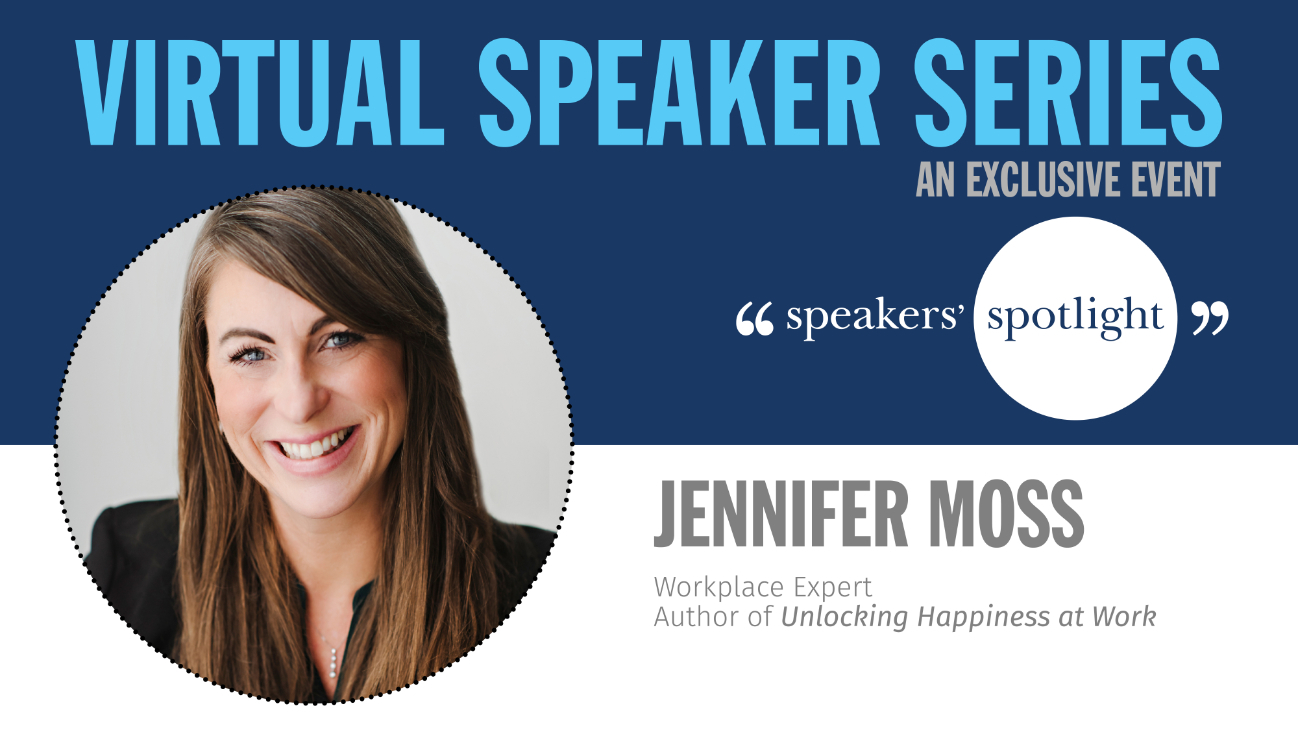Jennifer Moss, award-winning journalist and bestselling author of Unlocking Happiness at Work and The Burnout Epidemic, offers seven workshops for leaders as a follow-up to her keynotes. These workshops focus on the basics of burnout, the root causes of it, and how to solve them.
Each session is 60 minutes, and clients can book one, several, or all of the workshops.
Workshop 1 — Burnout 101: Debunking the Myths
In her essential workshop, Jennifer Moss will dispel the myths impacting our ability to prevent burnout. This workshop will provide attendees with the following takeaways:
- What is (and isn’t) burnout.
- Analyzing the top five biggest burnout myths.
- How to identify burnout in ourselves and others.
- Leadership strategies to decrease burnout in our teams.
- Simple, easy to implement tactics to manage chronic stress in our daily lives.
Workshop 2 — Workload: How to Manage Unmanageable Workloads
Workload has always been the leading cause of burnout, and the pandemic has only made it worse. In this imperative new workshop, Jennifer Moss provides attendees with the tools to manage overwhelming acute and persistent workload.
Takeaways will include:
- The surprising ways we accumulate work.
- How to document our workload and reduce inefficiencies.
- The impact of working on urgent versus priority needs and what we can do about it.
- Communication strategies for leaders and teams to reduce overwork.
- Why “saying no” doesn’t work and how to talk to your manager about your workload.
- The upstream strategies companies can implement to tackle overwork at the root.
Workshop 3 — Perceived Lack of Control: The Future of Work is Flexible
To be productive, happy, healthy, and engaged, people need to feel a sense of agency — the ability to make autonomous decisions about the ways in which they work and live. The most successful organizations get this, but it’s not always easy to implement. Jennifer Moss will provide leaders with the strategies to increase job satisfaction and engagement by implementing more flexibility.
- The value of autonomy (with research-backed examples and case studies).
- The negative consequences of micromanaging for both the micromanaged and the micromanager.
- How perceived lack of control can be a diversity and inclusion problem.
- What is job crafting and how will that increase employee purpose, passion, and engagement.
Workshop 4 — Lack of Reward or Recognition: Everyone Wants to be Seen
We may think we’re recognizing and rewarding the right people in the right ways, but evidence continues to show that we’re getting it wrong. And it’s causing people to burn out. Jennifer Moss helps leaders understand how to build more effective recognition and feedback strategies with burnout prevention at the core.
Takeaways include:
- Why lack of recognition and reward is a root cause of burnout.
- The value of healthy feedback loops and how to achieve them.
- The relationship between bias and lack of diversity in recognition strategies.
- How to build compensation programs that prevent burnout.
Workshop 5 — Poor Relationships: Closing the Loneliness Gap
Having a best friend at work increases the likelihood of staying in our jobs by 50%; it helps us to better handle both work and life stress and our risk of burnout is reduced by 41%. There are plenty of other reasons to encourage healthy and productive relationships at work. And yet, the pandemic changed how we form and foster those same workplace friendships. As a result, loneliness is higher than ever across our global workforce.
Jennifer Moss will speak to attendees about the value of friendships and how we can protect them in a pandemic and post-pandemic world. In this workshop, Moss will discuss:
- The business case for productive working relationships.
- Rethinking how we build friendships at work — less is more.
- How to develop psychological safety for higher-performing teams.
- Strategies for building authenticity in the workplace.
- Reconsidering our team building events — how to go deeper not broader.
- The ways to foster a sense of belonging in the workplace.
Workshop 6 — Lack of Fairness: Leveling the Playing Field
Policies that promote diversity and inclusion have increased substantially in recent years. Even before the pandemic, many of these policies missed the key issues that increase burnout. In the pandemic, these gaps were highlighted, and it generated a need to tackle this problem in new ways.
In this workshop, Jennifer Moss will address the following:
- Diversity and inclusions strategies with burnout prevention in mind.
- Understanding the impact of the pandemic on lack of fairness related issues.
- How to ensure organizational justice in practices and performance management.
- Ensuring there are mechanisms for reporting unfair treatment at work.
- Rebuilding psychological safety in a post-pandemic world.
Workshop 7 — Values and Skills Mismatch: Increasing Meaning, Purpose, and Fit
A culture that encourages shared values, beliefs, and behaviours between employees and the company itself enhances overall performance and reduces burnout. Not only because purpose-driven work can act as a barrier to burnout, feeling connected to a mission can fuel engagement — a counterpoint to burnout. Jennifer Moss’ research found that during the pandemic, employees were feeling mentally and emotionally distanced from the values and goals of the organizations they worked for.
Moss will offer strategies for renewing purpose and meaning in our people and teams. Takeaways from this workshop include:
- How to avoid a values and skills mismatch at hiring.
- Communicating values effectively.
- Ensuring leaders are modeling the values we want to see in our teams.
- Developing a career path for overqualified employees (a major issue in our younger workforce).
- Strategies for keeping our people connected to the mission and values during times of change or stress.




